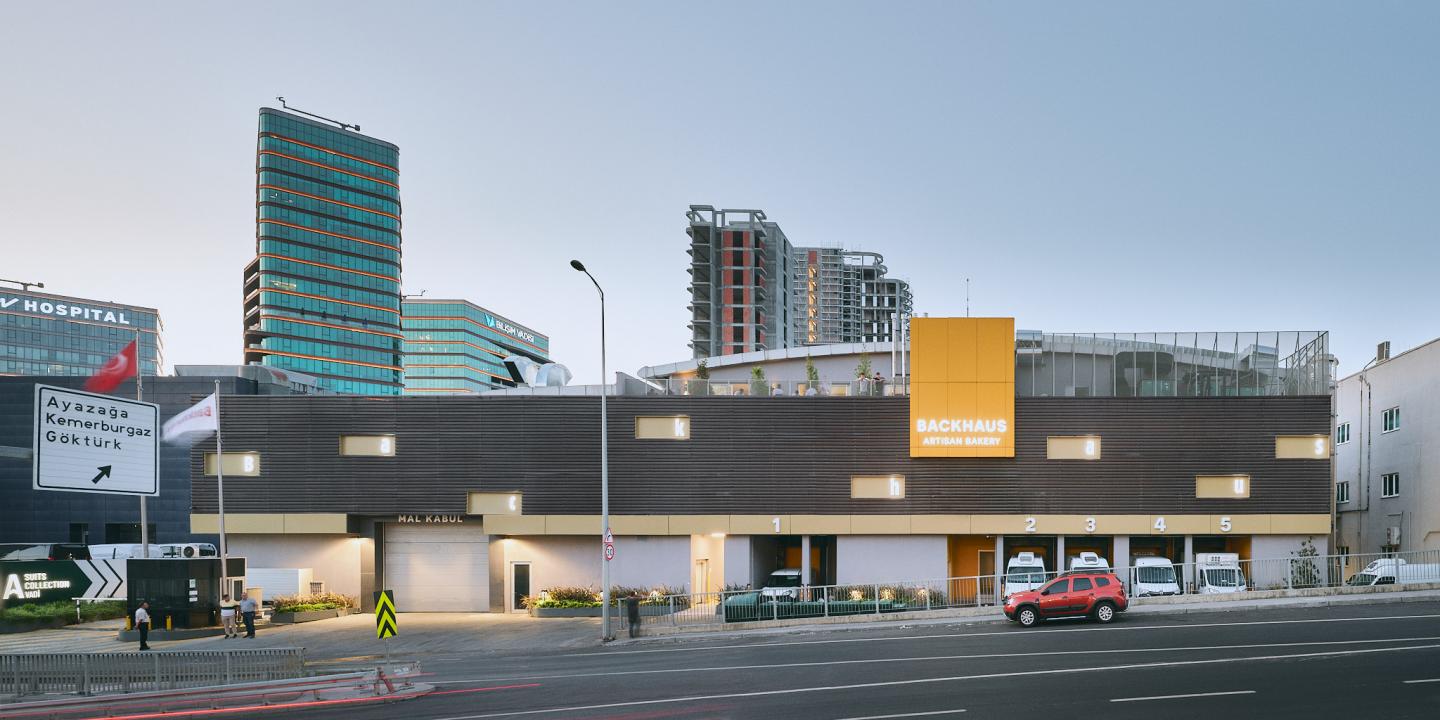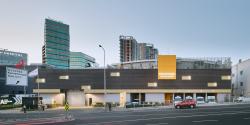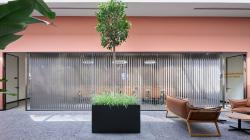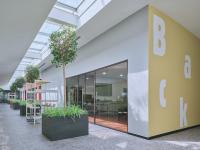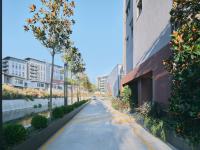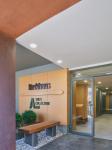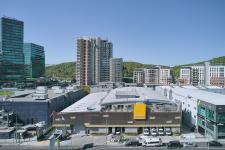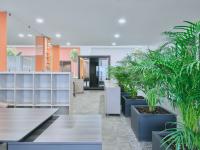Ayazağa, once known as a robust industrial hub, has recently undergone a transformation, shaped by the rise of office and residential developments that have introduced a new identity to the area. In this context of change, the Backhaus production and management facility stands as a repurposing project that recalls the region's industrial heritage. Initially constructed to serve the textile sector, the existing structure has been extensively renovated to accommodate the requirements of the food processing industry. The primary objective of this transformation was to create a production facility meeting the high hygiene standards of the food sector while making minimal interventions to the original structure.
The architectural language and materials employed in the building evoke the area's strong industrial past. The industrial materials used on the façade not only enable the building to stand out amidst Ayazağa’s growing residential and office landscape but also emphasize its industrial identity. The structure harmonizes with the district's ongoing transformation while retaining its industrial roots, serving as a prominent architectural element that showcases this heritage.
One key constraint in the design process was the limited availability of open spaces around the facility. Logistics and delivery operations were strategically positioned along the main road to facilitate vehicle access and optimize loading zones for efficient use, even during peak hours. Meanwhile, the entrance for users and visitors is located at the quieter, more inviting rear side of the facility, along the banks of the Ayazağa Stream. This placement creates a tranquil area separate from operational activities, enhancing the building's relationship with its natural surroundings and reinforcing its role as a thoughtful design element.
During the renovation process, the existing structural framework and building envelope were largely preserved. This approach ensured cost efficiency while maintaining the facility’s industrial character. However, critical modifications were made to the interior to meet the stringent hygiene standards required for food processing. Floors, walls, and ceilings were updated with hygienic materials that are easy to clean, chemically resistant, and feature antibacterial properties. Advanced HVAC systems, integrated into the building, include specialized filtration mechanisms to minimize airborne particulates and provide continuous clean airflow, ensuring compliance with food safety regulations. Additionally, hygienic transition zones, dressing rooms, and sterile workspaces were created to support the production processes.
The facility also includes dormitories and communal spaces designed to meet the needs of shift workers in a 24/7 operational environment. These areas provide comfortable and functional spaces for employees to rest and recharge, ensuring a productive and supportive working environment.
The administrative floor features a central skylight, allowing natural light to penetrate deeply into the interior, creating a space that can be described as an "internal street." This skylight not only enhances the dynamism of the interior with its play of light throughout the day but also highlights the openness and vibrancy of the space. The internal street serves as a gathering, interaction, and relaxation area for employees and visitors. Surrounded by offices and meeting rooms, it acts as a circulation axis and forms the heart of the administrative floor. This space offers a central point of orientation, fostering interaction among employees, facilitating brief breaks, and encouraging collaboration between different departments. The skylight serves as the defining element of this area, imbuing it with a unique and inviting character.
2024
2024
Architect(s): Zafer Karoğlu, Esen Karoğlu, Yıldırım Gigi, Rafet Taşçıoğlu, Hasan Korkut Gökçe, Senih Zengin
Employing Organization: Backhaus
Project Location: Ayazaga, Istanbul
Year of Production: 2024
Zafer Karoğlu, Esen Karoğlu, Yıldırım Gigi, Rafet Taşçıoğlu, Hasan Korkut Gökçe, Senih Zengin
